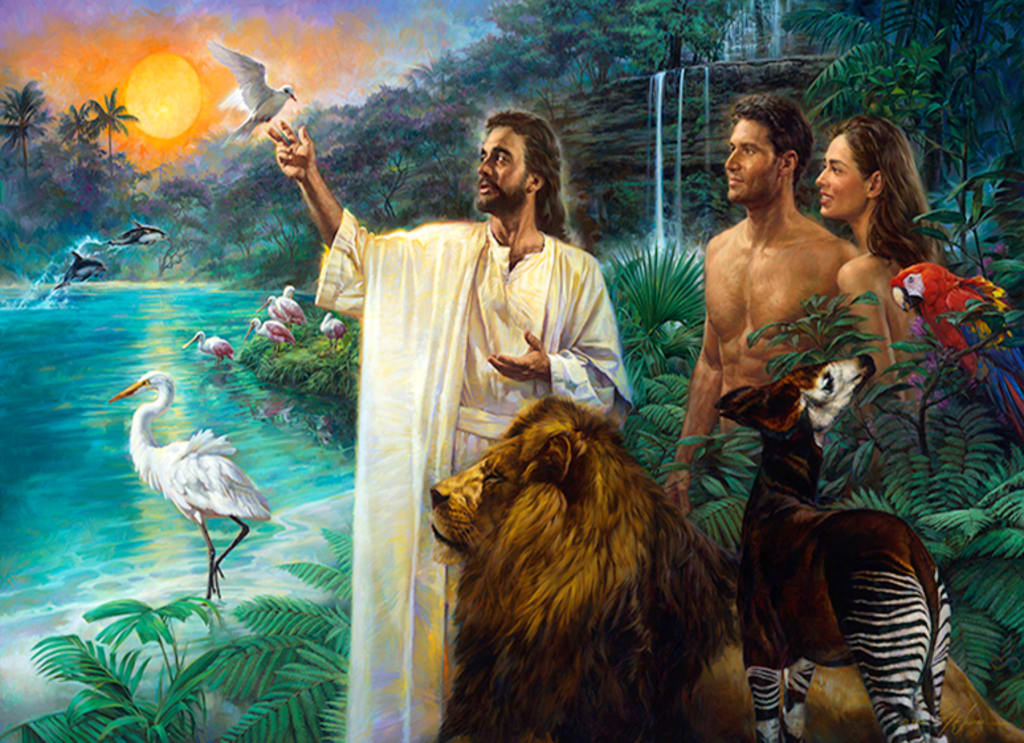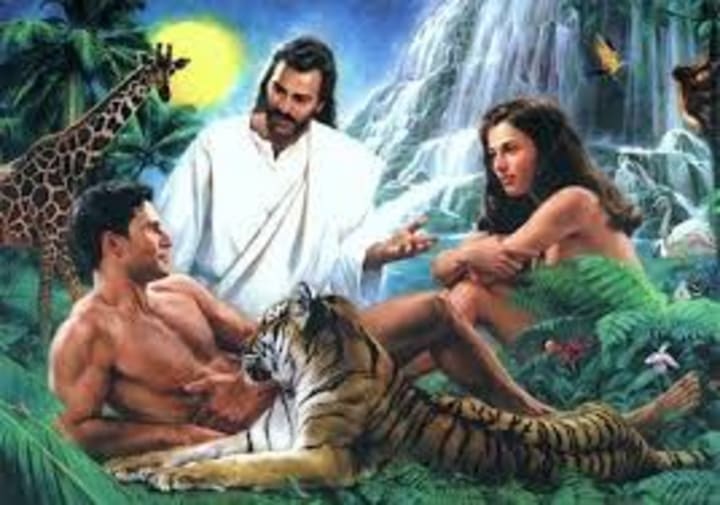EXPLORING THE DIVINE REFLECTION IN HUMANITY
Unpacking the Multifaceted Meaning of Being Created into the Image of God

The concept that humans are created in the image of God is found in the Bible, specifically in the book of Genesis.
Genesis 1:26–27
“Then God said, ‘Let us make mankind in our image, in our likeness, so that they may rule over the fish in the sea and the birds in the sky, over the livestock and all the wild animals, and over all the creatures that move along the ground.’ So God created mankind in his image, in the image of God he created them; male and female he created them.”
When the Bible speaks of human beings created in the image and likeness of God, it does not refer to physical appearance or bodily features. Instead, it is believed to refer to humans’ unique characteristics and qualities, which reflect certain aspects of God’s nature. These qualities may include rationality, morality, creativity, and the capacity for relationships.
EXPLANATION OF THESE QUALITIES OFTEN ASSOCIATED WITH HUMANS BEING CREATED IN THE IMAGE OF GOD
1. Rationality
Humans possess the ability to reason, think critically, and make choices based on logic and understanding. This capacity for rationality allows us to seek knowledge, understand the world around us, and make informed decisions.
2. Morality
Humans have a sense of right and wrong, an innate moral compass. We possess a conscience that guides our actions and helps us differentiate between good and evil. This moral capacity enables us to make ethical choices, act with compassion, and pursue justice.
3. Creativity
Humans can imagine, innovate, and create. We can conceive new ideas, and express ourselves through art, music, literature, and various forms of creative expression. This creative impulse allows us to bring forth new concepts, inventions, and cultural achievements.
4. Capacity for relationships
Humans are relational beings. We can form deep emotional connections, cultivate friendships, build families, and engage in social interactions. Our ability to love, show empathy, and form meaningful relationships reflects the relational nature of God.
These qualities are considered to be reflections of certain aspects of God’s nature. While humans possess these qualities to a limited extent, God is believed to possess them perfectly and infinitely. The concept of being created in the image of God suggests that humans, as unique beings, share these qualities and have a special place in the divine plan.
The idea of being created in the image of God suggests that humans have a special place in the divine plan. It emphasizes the inherent value and dignity of every human being, regardless of their physical appearance, race, or gender. It also implies a responsibility to reflect God’s character and attributes in our lives, striving to embody qualities such as love, justice, compassion, and righteousness.
While these qualities may be marred or distorted by human brokenness and sin, according to Romans 3;23. The concept of being created in God’s image points to the potential for restoration and transformation through a relationship with God. It invites humans to participate in God’s redemptive work and to grow in likeness to Him through the transforming power of His grace.

IMAGE OF GOD
The phrase “image of God” signifies that humans have a special place in God’s creation and are set apart from the rest of the created order, Man is a special creation. It emphasizes the inherent value and dignity of every human being, regardless of their physical appearance, race, or gender.
It is important to note that the Bible does not explicitly state that God has many faces. The phrase “image of God” is a metaphorical expression used to convey the idea of humans being created with qualities that reflect aspects of God’s nature. It is not intended to be understood literally as a physical representation of God’s appearance.
The Bible does not provide an explicit list of qualities associated with being created in the image of God. The concept of being created in God’s image is primarily introduced:
Genesis 1:26–27
“Then God said, ‘Let us make mankind in our image, in our likeness, so that they may rule over the fish in the sea and the birds in the sky, over the livestock and all the wild animals, and over all the creatures that move along the ground.’ So God created mankind in his own image, in the image of God he created them; male and female he created them.”
The biblical text does not explicitly define the characteristics or qualities that comprise the image of God. The specific qualities associated with being created in God’s image, such as rationality, morality, creativity, and the capacity for relationships, are interpretations and reflections developed by theologians and scholars throughout history.
These interpretations are derived from various passages in the Bible that describe aspects of God’s character and attributes, as well as the nature and capacities of human beings. For example, passages that emphasize human reason and understanding, moral responsibility, creative expression, and relationality contribute to the understanding of the image of God.
It is important to understand that interpretations of the image of God may vary among different theological traditions and scholars. The concept has been a subject of ongoing theological reflection and debate throughout history, and various perspectives exist regarding its meaning and implications.
By: John U. Ordillo
About the Creator
JOHN U. ORDILLO
M.A. in Pastoral Administration Asian Seminary of Christian Ministries
Former Jr. Planner/Design Engineer Norconsult Telematics Saudi Arabia
Former Outside Plant Engineer Saudi Engineering Group International
Enjoyed the story? Support the Creator.
Subscribe for free to receive all their stories in your feed. You could also pledge your support or give them a one-off tip, letting them know you appreciate their work.






Comments
There are no comments for this story
Be the first to respond and start the conversation.